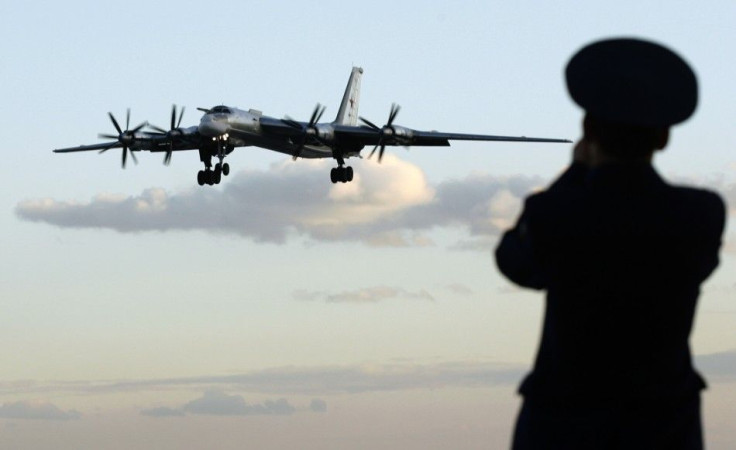UK Fighter Jets Intercept Russian Bomber Aircraft Near British Airspace: Second Incident This Year

Britain’s Royal Air Force jets on Feb. 18, Wednesday intercepted a pair of Russian aircraft flying near British airspace. This was the second such incident in 2015. As soon as the Russian aircraft was detected, the British Typhoon jets scrambled and intercepted them at international waters near Cornwall, in southwestern England.
A ministry representative said the Russian planes were escorted out by the RAF until from the U.K. area of interest. But the spokesman said at no point of time, the Russian military aircraft cross into U.K. sovereign airspace, reports CNN. The incident also did not lead to any disruption of civilian flights, according to the U.K. Department of Transport.
Rising Violations
In November 2014, NATO made a statement that Russian ingression into air space of its member states had led to incidents of members' jets scrambling more than 400 times to intercept Russian military flights. NATO also noted that such incidents in 2014 marked a drastic increase, at least four times, compared to the previous year. The latest incidents in the U. K will be seen by the NATO as one more case.
Meanwhile, a report in Wall Street Journal offered more details about the incident. A spokeswoman of the Defence Ministry said the Typhoon fighters of the U.K were deployed to meet the two Russian long-range Tu-95 Bear bombers, which were flying close to the U.K. airspace.
The Russian Embassy in London said it did not see any reason to comment on it, as there were no violations of the U.K. airspace. “We wonder, however, how far the area of U.K. interest stretches beyond the U.K. airspace borders,” an embassy spokesman said. Russia maintains that its flights in European airspace are not threatening any one and are in full compliance with international law.
Cameron’s Reaction
Prime Minister David Cameron in his comment sought to play down such incidents. He said, “what’s happening here is Russians trying to make some sort of a point and I don’t think we should dignify it with too much of a response.”
A similar incident in January 2015, prompted the U.K. government to summon the Russian ambassador to ask about unauthorised presence of Russian aircraft over the English Channel. That incident had forced British authorities to divert civil aviation.
Earlier in February, U.K. Defense Secretary Michael Fallon reacted sharply to the rising military spending by Russia. He said it was worrying and asked NATO to be prepared to respond to the aggression from Russia. Fallon has been an outspoken against Russian military activity in European airspace also, which he called, “illegal, provocative and dangerous.”
Fallon’s comments drew a harsh reaction from Russian Foreign Ministry spokesman Alexander Lukashevich, who said, the comments made by Falon were beyond the bounds of diplomatic ethics and his descriptions of Russia was intolerable.
(For feedback/comments. contact the writer at kalyanaussie@gmail.com)





















